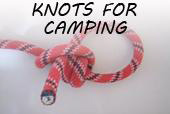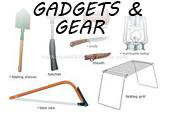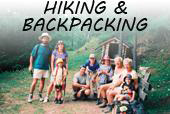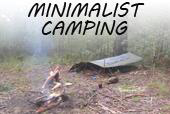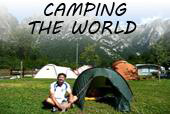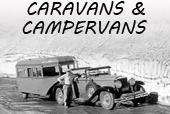As the modern-day equivalent of the old explorers, the backpacker will be exposed to all kinds of climatic conditions on many different types of terrain. He or she must be self-sufficient and prepared for the worst at all times. And preparedness starts before leaving home, with the selection of backpacking gear. Of particular importance is your backpacking sleeping bag. Not getting a good nights rest can lead to mistakes that can mean the difference between enjoying that view of the sunset from a mountain ridge and seeing that same sunset from a Search and Rescue helicopter.
1. The Backpacking Sleeping Bag – All Sleeping Bags Are Not Created Equal
Before choosing a sleeping bag, it can be helpful to know what some of the key differences are between the backpacking sleeping bag and other sleeping bags. The needs of a backpacker lead to special considerations that the backpacker must address:
The backpacking sleeping bag must be light. A typical backpacker will already be carrying food, extra clothing for rain or snow, fire-starting and cooking gear, flashlights, water bottles, first aid supplies and other survival gear, and any special equipment for traversing the terrain the backpacker will be in, such as ropes, pitons, etc. Adding a 25 pound sleeping bag to this load can make the weight unmanageable for someone not blessed with a Herculean physique.
It must be easy to store. The backpacking sleeping bag should roll into the smallest space possible, for easy stowage and maneuvering. A big, bulky sleeping bag tied to your back can be a major impediment when moving through difficult or heavily forested terrain.
The backpacking sleeping bag must adequately protect the backpacker from the elements. This is a more complicated issue to address and will be explored in more depth below.
2. Nature and You – Protecting Yourself from the Elements
Before you choose which sleeping bag to take with you on a given excursion, consider where you will be going. You wouldn’t take the same backpacking sleeping bag with you on a trip to the Rocky Mountains as you would on a trip to the Louisiana bayou. Is the area you are going hot? Cold? Humid? Dry? Is it the rainy (or snowy) season there? What kind of temperature variations are there between day and night? A polyfill or synthetic type insulated backpacking sleeping bag will keep you warm better when it is wet than a down filled, but a down-filled bag will keep you warmer in frozen, windy environments. A simple nylon shell may work well in a warm, humid climate, but cold winds will cut right through it. Microfiber linings will work well when wet, and provide good wind protection, but can be heavy and costly. And of course, the amount of a given material the backpacking sleeping bag uses directly influences both weight and bulk.
3. One Size Does Not Fit All
Although it would be nice if you could choose one backpacking sleeping bag for all climes, this is just not possible. Using a light shell in the mountains will make you freeze all night, and using a down-filled backpacking sleeping bag on a warm beach somewhere will lead to a night of sweltering in your bag. Even within groups of bags appropriate to a given climate, what works well for one person may not work for someone else. Metabolic and circulatory differences between people lead to differing needs in their backpacking sleeping bag. Look at the sleeping bag’s temperature ratings, they will give you an idea of the temperatures that a bag will keep you comfortable in. Also consider whether to purchase accessories such as hoods for minimizing heat loss through your head, or draft tubes to get rid of excess heat in the backpacking sleeping bag.
4. Final Words
After choosing a backpacking sleeping back that will work for you, also consider purchasing a liner for your sleeping bag. Using a liner will cut down on having to wash the entire sleeping bag. This will greatly extend the useful lifetime of your sleeping bag, since washing tends to make the insulating fill “clump”, greatly reducing comfort and effectiveness. Choosing a good, quality backpacking sleeping bag and properly caring for it will allow years of backpacking enjoyment.
Article Source: ArticlesBase.com – Backpacking Sleeping Bags – 4 Useful Tips To Purchase The Right One


